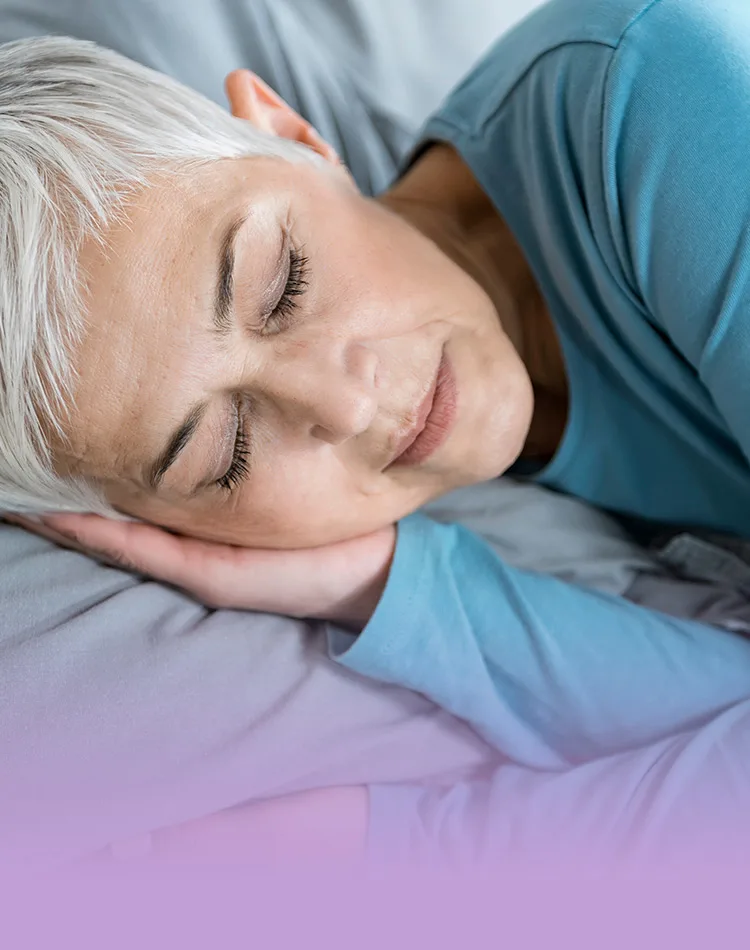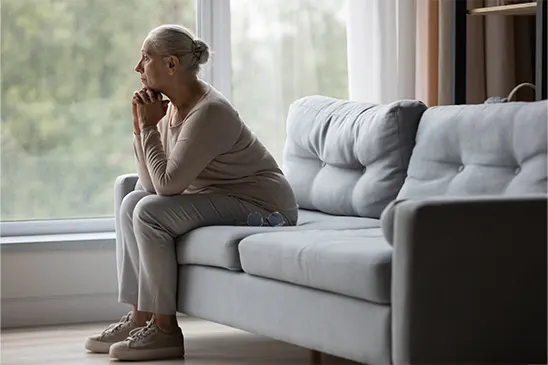
Nocturia is the condition of having to urinate frequently at night, which could disrupt sleep patterns. It can be caused by various factors such as medical conditions, medications, or lifestyle habits. Those who suffer from nocturia may experience fatigue, mood swings, and reduced productivity during the day.
Table of content:
How does the urinary tract normally work?
The urinary tract is responsible for the production, storage, and elimination of urine from the body. It consists of two kidneys, two ureters, the bladder, and the urethra. The kidneys filter waste and excess fluid from the blood, which is then transported to the bladder through the ureters. The bladder stores urine until it is ready to be eliminated through the urethra. The muscles of the bladder and urethra work together to control the release of urine. Normally, the bladder can hold up to 400-600 millilitres of urine, and the average person urinates between 4-7 times a day. At night, the body produces less urine, and most people can go without urinating for 6-8 hours. However, in individuals with nocturia, the urinary tract does not function properly, leading to frequent urination at night.
What is nocturia?
Nocturia is a condition that can affect individuals of any age, but it becomes more common as people get older. Nocturia can manifest itself in different ways, such as urinating more frequently at night, difficulty falling back asleep after urination, or a strong urge to urinate that is difficult to control. In more severe cases, individuals may experience nighttime incontinence, which can be embarrassing and strongly affect their quality of life, leading to fatigue, mood swings, and decreased productivity during the day. Over time, poor sleep can become a major problem for people urinating at night.
Various factors can become the reasons for frequent urination at night. For instance, drinking too much water or other fluids before bedtime can increase the amount of urine produced by the kidneys and contribute to nocturia. Certain medical conditions, such as diabetes, overactive bladder, or prostate problems, can also cause nocturia and nighttime incontinence. Treatment options for nocturia depend on the underlying cause and may include medications, lifestyle modifications, or even surgical interventions.
What are the causes of nocturia (frequent urination at night)?
Urinating at night can make it hard to get the rest you need. Nocturia can be caused by a variety of factors, ranging from lifestyle habits to underlying medical conditions. Understanding the causes of frequent urination at night can help individuals take steps to manage their symptoms and improve their quality of life. The list below presents some of the most common causes of nocturia:
- medical conditions – some health afflictions may lead to nocturia, for example diabetes, kidney disease, bladder infections, overactive bladder syndrome, interstitial cystitis, or prostate problems in men;
- medications – drugs such as diuretics and some blood pressure medications, can contribute to nocturia;
- aging – as we get older, the body's ability to retain urine deteriorates, while the bladder muscles weaken, leading to frequent urination at night;
- anxiety and stress – such problems can affect bladder function and increase the probability of nocturia;
- sleep disorders – certain sleep conditions, such as apnea, can play part in the development of nocturnal incontinence;
- hormonal imbalances – the kidneys produce more urine because of low levels of antidiuretic hormone (ADH), for example;
- urinary tract problems – structural abnormalities in the urinary tract, such as an enlarged prostate or a bladder obstruction, are common factors increasing the risk of nocturia;
- excessive fluid intake before sleep – drinking too much water or other beverages before bedtime can increase urine production and result in frequent urination at night;
- too much caffeine or alcohol – these substances can make our body produce more urine.
More plainly, urinating at night can also be a symptom of having an overactive bladder.
Overactive bladder, or OAB, is caused by bladder muscles that spasm and contract involuntarily – even when your bladder isn’t full. This can send you running to the toilet – or, as can be the case with nighttime incontinence, wetting the bed. Overactive bladder is often the result of nerve damage caused by previous pelvic surgery, or of a neurological disease such as multiple sclerosis or Parkinson’s. In some cases, a particularly difficult birthing process can cause damage to the surrounding muscles, tissues, and nerves surrounding the bladder, leaving you with a sensitive bladder.

Our bodies produce less urine while we’re sleeping. However, this means that the urine we do produce is more concentrated and acidic, which can aggravate a sensitive bladder, causing it to spasm and wake you up having to pee.
7 Ways to Naturally Stop Frequent Urination at Night
On occasion, nighttime incontinence can leave you with some wet sheets to grapple with in the morning. If you have a sensitive bladder that spasms involuntarily, you may not wake up in time to use the toilet. When this happens, the obvious question that comes to one’s mind is how to stop frequent urination at night. After all, the worry of getting the bed wet, inconveniencing your partner, or having to wash the sheets can result in anxiety, preventing a good night’s rest. Fortunately, nocturia of this sort is best remedied through lifestyle adjustments.
With a little planning, you can get your sleep back on track. Here are some small tweaks you can make to keep your bladder from getting between you and that long, restful sleep you need. When used correctly and consistently, they can allow you to stop peeing at night.
1. No drinks before sleep
When you drink fluids before going to bed, your kidneys continue to produce urine, leading to the need to pee during the night. So how to stop urinating at night? It could be a good idea to avoid drinking anything, including water, after a set time every night. Some people find that not drinking any liquids three to four hours before bedtime is most effective for limiting nighttime urination and nighttime incontinence. But if you do this, don’t limit your daily hydration - it’s critical to get enough water throughout the day! Play around with your liquid cut-off time to see what works best for you. A little tinkering with your routine and you may be well on your way to saying goodbye to urinating at night. If you must drink fluids in the evening, it is essential to choose liquids that are less likely to irritate the bladder, as described below.
2. Stick to bladder-friendly liquids
Certain liquids are known to stimulate an overactive bladder, causing it to spasm, and jolt you out of your sweet dreams with the sudden urge to go. Caffeine is a known diuretic and stimulant, which means it increases bladder activity. This is not something you want if you already have an overactive bladder, especially if you’re prone to incontinence at night.
While caffeinated and alcoholic beverages are the biggest and most well-known culprits here, did you know that fizzy drinks like sparkling water or carbonated soft drinks are also bladder irritants? The “fizz” in carbonated drinks can irritate your bladder. It’s best to steer clear of them.
3. Double up before bedtime
Many people make the mistake of rushing through their bathroom routine, which can make residual urine remain in the bladder. This can cause the bladder to feel full, leading to the need to urinate during the night. If you tend to experience this problem, an effective way to prevent it is to double up your trips to the bathroom before bedtime. This means making a conscious effort to empty your bladder completely before you head to bed. To put is simply, empty your bladder twice before nighttime. It may be helpful to go to the toilet once before brushing your teeth, and then once more right after this so that any urine that wasn’t emptied out the first time around comes out on the second try.
4. Consider pharmaceuticals
If lifestyle adjustments are not sufficient to prevent frequent urination at night, your healthcare provider may recommend medications to help manage the symptoms. Some medications can relax your bladder muscles, thereby reducing their spasming, resulting in fewer episodes of nocturia. In this case, the most commonly prescribed medications include desmopressin, anticholinergics and alpha-blockers.
Remember that all drugs come with potential side effects, and not all of them are suitable for everyone. Talk to your doctor to see if this is an appropriate plan of action for your nighttime incontinence symptoms and lifestyle. They should evaluate your symptoms and medical history to determine the best course of treatment for your specific situation.
5. Keep your weight healthy
Maintaining a healthy weight is a good way to reduce nightly urination, as excess weight can put additional pressure on the bladder and increase the likelihood of problems such as nighttime incontinence. Research has shown that losing weight can considerably reduce the frequency and severity of nocturia symptoms in individuals who are obese or overweight. This is likely because weight loss can decrease pressure on the bladder and bring down inflammation in the body.
Apart from weight loss, physical exercise can also be beneficial in figuring out how to stop going to the toilet at night. Regular physical activity can help to improve bladder control and strengthen pelvic floor muscles. Try to make sure that most days of the week you do at least 30 minutes of moderate-intensity exercise, such as walking, cycling, or swimming.
6. Do Kegel exercises, also known as Pelvic floor exercises
Kegel exercises, also known as pelvic floor exercises, are a simple and effective way to answer the question how to stop peeing at night. They involve contracting and relaxing the muscles that support the bladder, urethra, and rectum, which can strengthen the pelvic floor and improve the overall bladder control.
Start the exercises by identifying the pelvic floor muscles. This can be done by attempting to stop the flow of urine midstream during urination. Once you have identified the muscles, contract them for five seconds, then relax for five seconds. This cycle should be repeated ten times, three times per day. Over time, you can increase the duration and intensity of your Kegel exercises, aiming for 10-second contractions and longer relaxation periods. Remember not to perform Kegel exercises while urinating, as this can lead to urinary tract infections.
It is worth noting that Kegel exercises not only reduce nightly urination but can also be beneficial for improving overall bladder control and enhancing sexual function.
